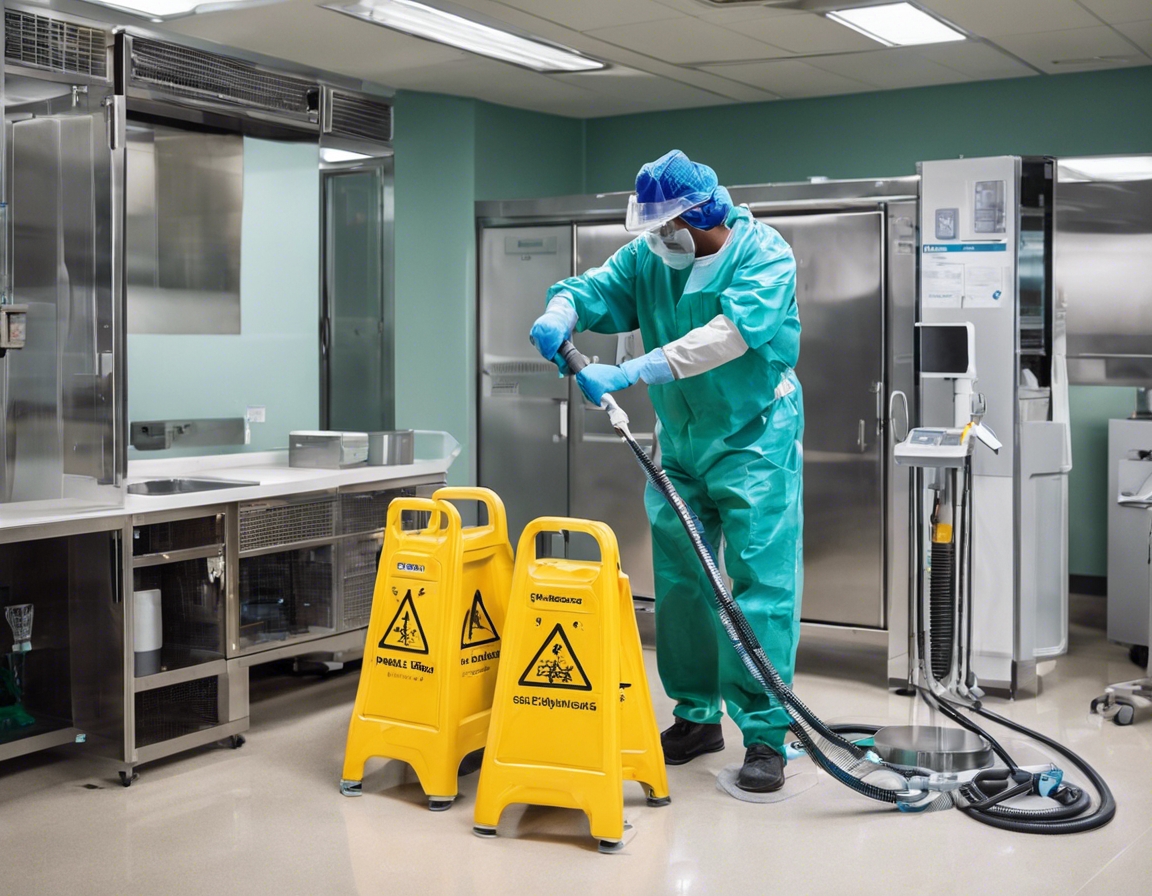The importance of surgical-level sanitation in healthcare facilities
Surgical-level sanitation refers to the stringent cleaning and disinfection practices used in operating rooms and other critical areas within healthcare facilities. These practices are designed to eliminate pathogens and reduce the risk of infection, ensuring the safety of patients and healthcare workers alike. The significance of such high standards cannot be overstated, as they are crucial for maintaining a sterile environment during medical procedures.
The concept of sanitation in healthcare has evolved significantly over the centuries, with major advancements occurring in response to the understanding of germ theory and the spread of infectious diseases. Today, surgical-level sanitation is a culmination of years of medical research and technological advancements aimed at preventing postoperative infections and improving patient outcomes.
The Role of Sanitation in Infection Control
Hospital-acquired infections are infections that patients acquire during their stay in a healthcare facility, which were not present at the time of admission. HAIs can be caused by a variety of pathogens, including bacteria, viruses, and fungi. Effective sanitation practices are essential in preventing these infections, which can lead to increased morbidity, extended hospital stays, and higher healthcare costs.
Sanitation protocols in healthcare facilities are designed to interrupt the transmission of pathogens. These include routine cleaning, disinfection of surfaces, sterilization of medical instruments, and adherence to hand hygiene. The impact of these protocols is significant, as they have been shown to reduce the incidence of HAIs and enhance the overall quality of patient care.
Standards and Regulations for Healthcare Sanitation
Healthcare sanitation is governed by a set of global and national guidelines that outline the minimum standards for cleaning and disinfection. Organizations such as the World Health Organization (WHO) and the Centers for Disease Control and Prevention (CDC) provide comprehensive guidelines that healthcare facilities are expected to follow.
Compliance with sanitation standards is critical for healthcare facilities to ensure patient safety and avoid penalties. Regular monitoring and auditing are conducted to assess adherence to guidelines and the effectiveness of sanitation practices. Non-compliance can result in significant repercussions, including legal action and loss of accreditation.
Best Practices for Surgical-Level Sanitation
Advanced cleaning techniques, such as the use of microfiber materials, color-coded cleaning systems, and no-touch cleaning equipment, have been adopted to enhance the effectiveness of sanitation practices. These techniques help in the thorough removal of contaminants and prevent cross-contamination.
Eco-friendly disinfectants are gaining popularity in healthcare settings due to their lower environmental impact and reduced toxicity. These products are effective against a broad spectrum of pathogens while being safe for patients, staff, and the environment.
Staff training and awareness are fundamental components of maintaining surgical-level sanitation. Healthcare workers must be educated on the importance of sanitation, proper techniques, and the use of personal protective equipment (PPE) to protect themselves and their patients.
Technological Innovations in Sanitation
Automation and robotics are revolutionizing the field of healthcare sanitation. Robotic cleaning systems can consistently perform tasks with high precision, reducing human error and exposure to harmful pathogens.
UV-C disinfection and advanced air filtration systems are being increasingly used to sanitize air and surfaces in healthcare facilities. These technologies offer an additional layer of protection by inactivating airborne pathogens and ensuring clean air circulation.
The Role of Professional Cleaning Services
Professional cleaning services, such as those provided by ARENDE OÜ, bring expertise and specialization to the task of maintaining surgical-level sanitation. With a focus on high standards and eco-friendly practices, these services play a critical role in supporting healthcare facilities in their mission to provide safe and clean environments.
Customized cleaning solutions are essential for meeting the unique needs of different healthcare facilities. Professional cleaning companies can tailor their services to accommodate the specific requirements of operating rooms, patient wards, and other areas within a healthcare setting.








Comments (0)